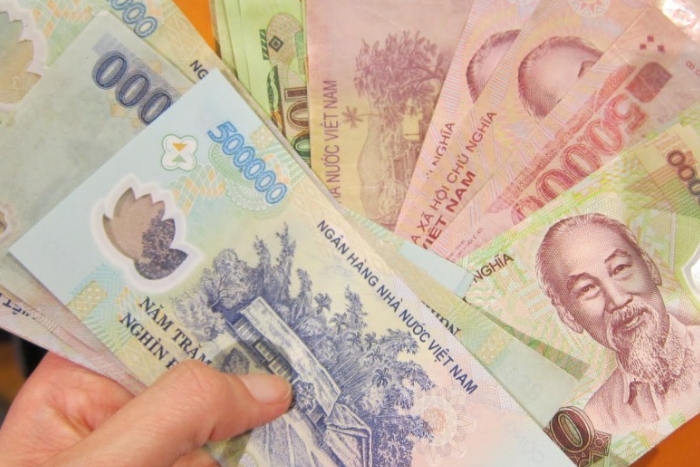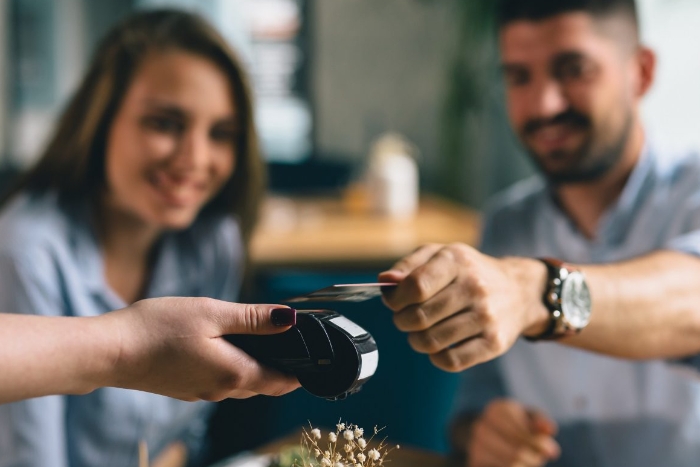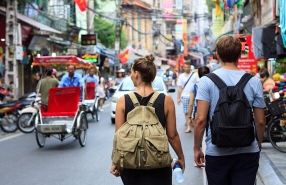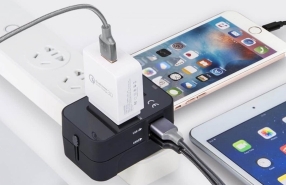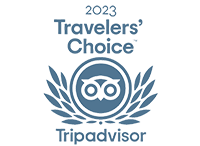With the continuous wave of tourists from Western countries, tipping culture has gradually become a common practice in Vietnam. What's interesting about the tipping culture in Vietnam and how to tip in Vietnam? Let's explore with Autour Asia to learn useful information about tipping culture in Vietnam!
I. What is tipping culture?
Tipping culture originates from Western culture. Initially, tips represented modest sums voluntarily added by patrons to their bills, intended as a gesture of solidarity towards those with lower incomes. Over time, this type of currency gradually became popular in the service, restaurant, and hotel industries.
In Vietnam, this notion translates into the monetary appreciation bestowed upon service personnel in acknowledgment of their dedicated and attentive service. Occasionally, tipping serves as a subtle demonstration of a customer's social standing or refinement.
II. Is tipping culture normal in Vietnam?
Is Vietnam a tipping culture? Tipping remains an uncommon practice in Vietnam, despite being greatly valued. The concept of tipping still feels unfamiliar to the majority of locals. Tourists visiting Vietnam frequently refrain from tipping simply because they perceive it as unnecessary.
The service landscape predominantly comprises street-side eateries and family-run establishments, lacking explicit guidelines on gratuities. Individuals working in these settings might find themselves puzzled or might even prompt you to take your change back. Conversely, tipping culture generally embraced (and anticipated) in upscale dining venues, bars, and spas. Notably, in bustling metropolises like Ho Chi Minh City, Hanoi, and Da Nang, tipping appears to be more customary.
Moreover, while tipping garners appreciation in major tourist hubs and urban settings, rural areas don't hold any anticipations towards gratuities. Offering tips could be deemed offensive, particularly among older individuals who typically don't foresee such gestures.
III. Should you tip in USD or VND (Vietnamese Currency)?
Both options are possible. You have the flexibility to choose either option. Yet, considering the widespread use and primary role of the Vietnamese Dong (VND) within the country, tipping in VND emerges as the most pragmatic choice.
Additionally, given its lower value in comparison to the US Dollar, opting for the local currency not only fits tipping in Vietnam situations but also proves advantageous when indulging in shopping during your travels in Vietnam.
IV. How to tip in Vietnam ?
In Vietnam, tipping culture is not mandatory. So how to tip in Vietnam ? If you want to show appreciation for exceptional service, You can consider the suggestions below :
1. Tipping in hotel
Should you opt to offer a tip at the hotel, you have several options: place it discreetly on a nearby table, contribute to the gratuity box (if available), or position it visibly within your room. Directly presenting the gratuity ensures it reaches the intended individual, acknowledging their efforts specifically without being divided among employees sharing the same shift.
So, kindly consider expressing appreciation through tipping in Vietnam when you discover a hotel that aligns with your room preferences or when you encounter exceptionally helpful and amiable staff.
The appropriate amount typically varies between 20,000 to 50,000 VND. Employees at luxury hotels (ranging from 4 to 5 stars) might anticipate larger tips, although abstaining from tipping is entirely acceptable. Recognizing outstanding service by penning positive reviews on platforms like TripAdvisor or other travel websites holds considerable significance as well. Some hotels even grant monthly bonuses to employees mentioned by name for their exemplary service on these platforms.
If you reside in the same abode, lending a hand in tidying up and presenting a small gift from your homeland would be a thoughtful gesture. Additionally, promising to recommend their accommodation to friends or family can hold considerable value for them.
2. Tipping in restaurant
If you find the service exceptional and wish to show appreciation, adding an extra 5-10% to the bill, even if a service charge is included, is a thoughtful gesture. To ensure that your gratuity goes directly to exemplary staff members, it's advisable to hand it to them personally.
During your travels in Vietnam, exploring street food from local vendors is almost inevitable. These spots are often family-run businesses, offering delicious fare without the expectation of receiving a tip.
Conversely, while they might feel too proud to accept additional money, they deeply value positive feedback and a warm demeanor. Engage in conversation, offer a thumbs-up, or even request a photo; by day's end, they'll gladly regard you as a newfound friend.
3. Tipping in bar
Bars are frequently seen as a component of the upscale experience in Vietnam, given that their prices typically exceed those of restaurants and local diners. Yet, bartenders don't typically earn substantial incomes and rely heavily on tips for their livelihood. It's become customary to tip them, with an appropriate amount generally averaging around 50,000 VND.
4. Tipping tour guides
The pivotal role of a tour guide in ensuring the success of your trip cannot be overstated. Hence, it holds immense importance to show generosity towards your tour guide, especially during private tours.
Typically, an average tip ranges from 3-5 USD per day (approximately 70,000 VND - 120,000 VND). However, if you find the service exceptional, extending a maximum tip of up to 10 USD (around 230,000 VND) remains a reasonable gesture of appreciation. Some travelers might even consider presenting their tour guide with a small, customary gift from their hometown, though this choice entirely rests with you.
5. Tipping taxi drivers
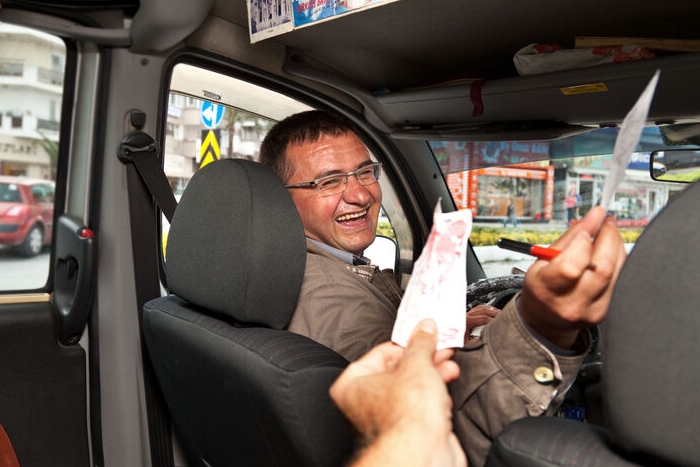
Polite, friendly, honest, and English-proficient taxi drivers are genuinely priceless, and tipping them is a fitting gesture of gratitude if you encounter such a gem. The easiest method is to round up your bill amount. So how much to tip a taxi driver? For instance, if your trip costs 42,000 VND, rounding it to 50,000 VND is a simple and considerate act. While tipping more than 10,000 VND might not be customary, the ultimate decision remains entirely yours.
V. Notes on tipping
An exceptional substitute for tipping is always a warm smile, a glowing review on TripAdvisor, or even a thumbs-up gesture. Generally, Vietnamese individuals tend to cherish sincere and upbeat feedback more than monetary rewards.
Exercise caution before offering tips in rural or suburban regions, especially when dealing with elderly individuals. They might feel uncomfortable, and in certain instances, excessive tipping might even cause offense.
In conclusion, you can explore this guide to tipping culture in Vietnam to discern appropriate situations and recommended amounts to enhance and appreciate your service providers. If you want to learn more useful information about Vietnam, please visit our website.

